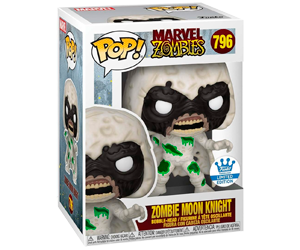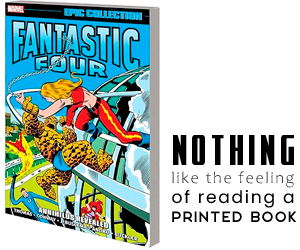Synopsis
Black Panther (1998 series) #30 synopsis by
 Rob Johnson
Rob Johnson
Rating:

Following recent events, culminating in the US getting involved in a war between Wakanda, Atlantis, the Deviants of Lemuria and Dr Doom, the Senate Intelligence Committee is holding a closed hearing to decide whether the US can afford the risk of allowing the Black Panther to stay in the country. As King of Wakanda he can't of course be put on trial. But he has agreed to attend the hearing, with Everett K. Ross, his State Department minder, as his defence lawyer.

Excelsioring your collection
Captain America is called as a witness for the defence. He describes his first contact with Wakanda, which is still a state secret.
Cap and a troop of Military Intelligence soldiers went to the hidden African kingdom of Wakanda during WWII to investigate the source of a sample of vibranium. He met the then Black Panther, T'Challa's father T'Chaka. They sparred, while armed natives held off the GI's. Impressed by Cap's skill and restraint, T'Chaka agreed to talk to him. The US was worried that the Germans might find out about vibranium, and overrun Wakanda to take it. T'Chaka showed his knowledge of the state of the war (and of languages), which the US was still officially neutral in.
Back in the courtroom Ross seems to be acting more like the prosecution than the defence. Cap recommended the Panther as an Avenger back in Captain America #100 and Avengers #52 (the original series both). But Ross gets Cap to admit that (in #8) T'Challa claimed to have joined the Avengers to investigate them as a potential threat to his country. And that (in #9) he accused a US Government agency of trying to take over Wakanda.
The next defence witness Mr Fantastic describes how (in the classic Fantastic Four #52-54) the Panther invited the FF to hitherto-hidden Wakanda to suss out this new breed of super-heroes.
A third witness police officer Price fills in the gap between last issue and this. Last issue ended with T'Challa (who had submitted to arrest for killing Klaw) and Ross being menaced by a mob angry at Wakanda's apparent attack on the US. Arresting officer Price was steeling herself to defend them with her gun, when the Panther escaped his handcuffs and carried Price and Ross to safety.
Ross finally makes his point. T'Challa isn't a superhero. He is the leader of a sovereign nation who does what is necessary for his country. Wakanda doesn't need the US, it can stand on its own. But T'Challa is willing to be a friend of the US. And along the way Ross throws in that the Panther has actually been one of the good guys.
Behind the scenes the Committee decide not to ban Black Panther from the US. We then have several epilogues.
T'Challa proposes to Monica Lynne, but she rejects him and they part friends.
We see a continuation of the WWII meeting between Cap and T'Chaka. T'Chaka gives Cap a chunk of vibranium. He asks how he can trust Cap to keep Wakanda and vibranium a secret, if he lets Cap and the soldiers return to the US. Cap gives him his triangular shield as a sign of their deal. Cap's idea of keeping the secret is to tell the US Government (as he was bound to do), but ensure that the existence of Wakanda is kept classified.
Today Cap recalls how Myron McLaine incorporated the vibranium into his indestructible round shield (as shown in CA#303). Panther returns the triangular shield. A caption lets us know it wasn't the only one Cap had (another was destroyed in Avengers #275). But Cap gives it back to him.
Ross remembers (in a scene from #1) his dead (since #24) girlfriend/boss Nikki Adams, in their wrecked apartment (trashed by Nikki in #18). He wonders if he can get his treason charges dropped (treason because he sided with Wakanda). He gets a visit from his disgruntled (because of Ross's actions with the Black Panther) new boss Henry Peter Gyrich (bugbear of the Avengers). Then Mephisto turns up! (We haven't seen him since #1-5 where, amongst other things, Ross sold his soul for a pair of trousers.)

Excelsioring your collection
CharactersGood (or All)Plus: Black Panther (
Sr.), Everett K. Ross.